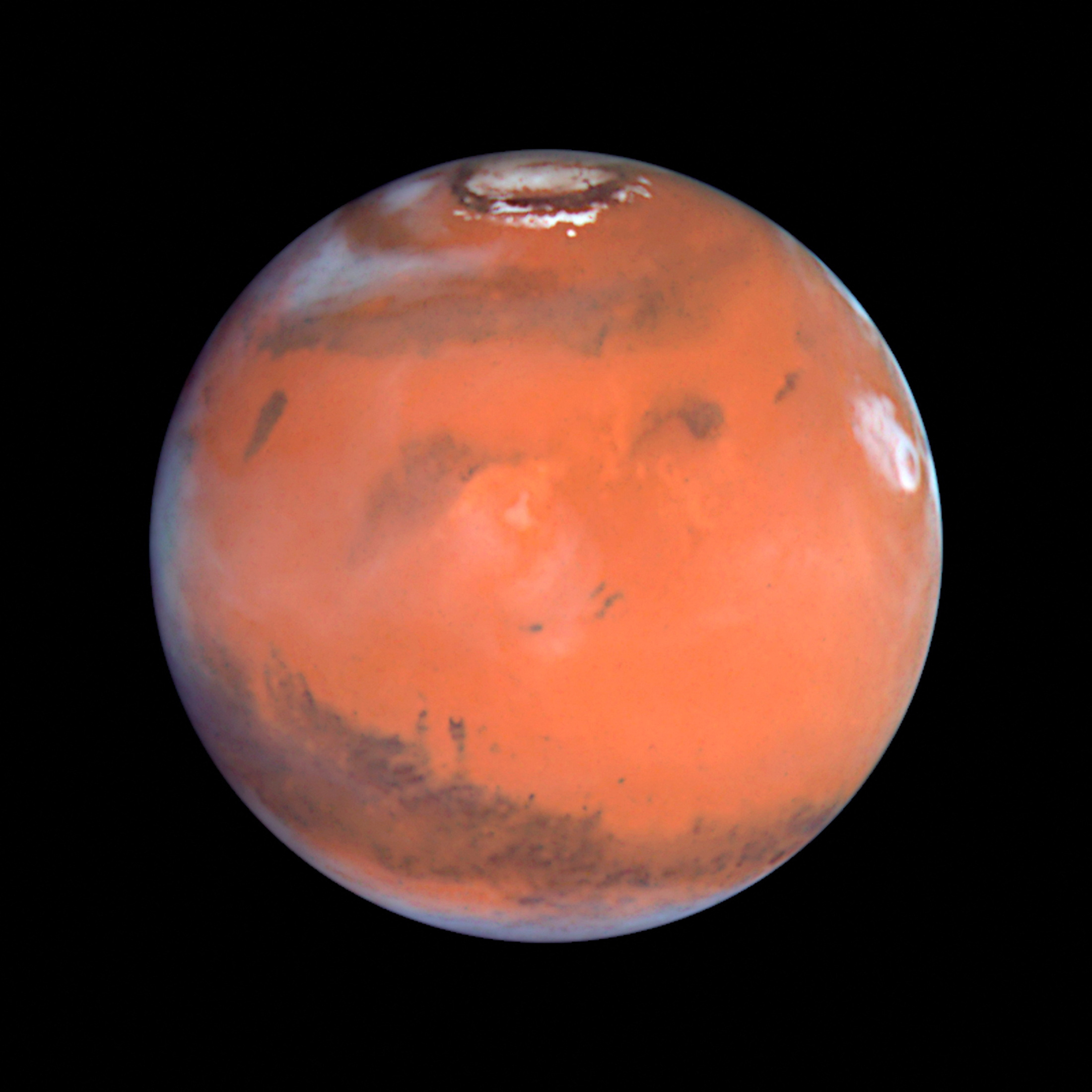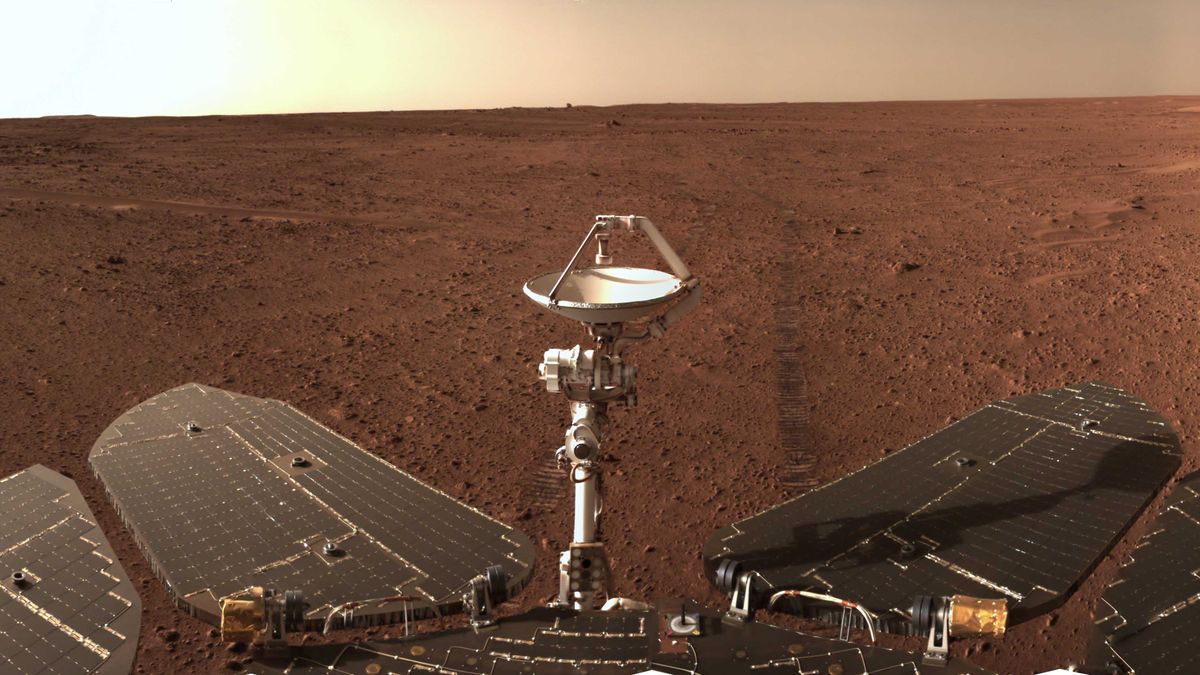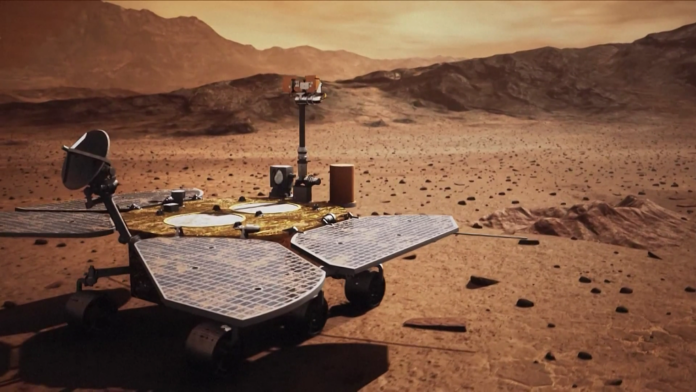In a remarkable discovery, China‘s Mars rover Zhurong has reportedly found signs that an ancient ocean once existed on the Red Planet. This revelation, announced by Chinese scientists, could have profound implications for our understanding of Mars’s history, climate, and potential to have hosted life. The evidence uncovered by Zhurong supports the idea that Mars was once a wet world, rich in water, and perhaps even capable of supporting life.
Zhurong Rover’s Mission and Objectives
Zhurong, China’s first Mars rover, landed on Mars in May 2021 as part of the Tianwen-1 mission, the country’s ambitious Mars exploration program. Named after a mythical fire god, Zhurong has been tasked with studying the Martian surface, its climate, and its geological history. The rover landed in Utopia Planitia, a large plain in Mars’s northern hemisphere believed to be a potential ancient seabed.
One of Zhurong’s key objectives has been to search for signs of water and ice, as well as other environmental indicators that Mars may have once been hospitable. Equipped with advanced scientific instruments like ground-penetrating radar, multispectral cameras, and climate analyzers, Zhurong has been systematically studying the Martian terrain, searching for clues about its watery past.

Evidence of an Ancient Ocean
Zhurong’s recent findings come from analyses of sediments and geological formations in Utopia Planitia. The rover’s ground-penetrating radar revealed layers of sedimentary deposits beneath the Martian surface, suggesting that the region may have once been covered by an ocean. This type of sedimentary layering is commonly associated with long-standing bodies of water on Earth, such as lakes and seas.
The composition of these layers suggests they were formed by water-based processes, reinforcing the hypothesis that Mars once hosted vast oceans, rivers, and lakes. Zhurong’s discoveries align with findings from previous missions that indicated Mars had liquid water billions of years ago. However, the Chinese rover’s findings add a new level of detail, particularly in this specific region of Mars, which may have once been the site of a large, ancient ocean.
Geological Features Hinting at Water’s Presence
Aside from sediment layers, Zhurong also discovered other geological features typically shaped by water, such as channels and valleys that appear to have been carved by flowing liquid. Some rocks display erosion patterns that strongly indicate the action of water over an extended period. This kind of erosion, where rocks are smoothed and sculpted, is a process seen on Earth in locations that were once submerged.
The possibility of an ocean in Mars’s northern hemisphere raises intriguing questions about the planet’s climate in the distant past. Scientists believe that if Mars indeed had an ocean, it would have required a thicker atmosphere capable of retaining heat, potentially making it a warm and habitable environment billions of years ago.
What This Means for Past Life on Mars?
The discovery of an ancient ocean on Mars dramatically increases the likelihood that the planet may have supported microbial life. On Earth, water is a fundamental requirement for life, and wherever we find liquid water, we generally find life. The presence of such a large body of water on Mars suggests it could have been a conducive environment for life, possibly supporting microbial organisms in a way similar to ancient Earth.
If Mars did have a thriving aquatic environment, it’s conceivable that life may have emerged there. While conditions on the Red Planet have changed drastically, with its surface now barren and its atmosphere thin, this ancient Martian ocean could have sustained life forms before the planet lost its water and atmosphere.
Dr. Zhang Hui, a leading scientist on the Tianwen-1 mission, stated, “Our discovery of sediment layers and erosional features strongly suggests that liquid water once existed here. These findings open a fascinating new chapter in the study of Mars’s history and its potential to have harbored life.”
Implications for Future Mars Missions
The discovery made by Zhurong emphasizes the need for further exploration and detailed study of Mars’s surface and subsurface. Understanding the timeline and duration of liquid water on Mars is essential to determine if life had a chance to develop and sustain itself. Missions from various space agencies, including NASA’s Perseverance rover, are also investigating signs of past water and life on Mars, making it a collaborative global effort to uncover Mars’s secrets.
China’s space agency, the China National Space Administration (CNSA), has indicated that Zhurong will continue exploring and collecting data to further understand Mars’s climate history. This includes studying mineral compositions and other indicators that could provide clues about the planet’s ancient environment. Zhurong’s findings add to a growing body of evidence suggesting that Mars once had stable bodies of water, possibly in the form of seas or even oceans, which may have provided habitats suitable for life.
Challenges in Studying Ancient Martian Oceans
While the evidence is compelling, studying ancient oceans on Mars is not without its challenges. Mars’s geological history is complex, and billions of years of erosion, volcanic activity, and meteor impacts have altered its landscape. Determining the exact nature of the sediment layers, their age, and the length of time Mars retained water are all questions that scientists are eager to answer.
Zhurong’s data helps scientists piece together Mars’s environmental history, but confirmation of an ancient ocean requires further evidence. The rover’s radar and imaging instruments will continue to collect data, providing valuable insights into the geological history of Utopia Planitia. There is also hope that future missions, possibly with more sophisticated drilling equipment, will be able to retrieve samples from deeper below the Martian surface to analyze the planet’s past conditions in greater detail.
The Global Race to Uncover Mars’s Secrets
Zhurong’s discoveries come at a time when interest in Mars exploration is at an all-time high. With NASA’s Perseverance rover exploring the Jezero Crater and the European Space Agency (ESA) planning future missions, there is a concerted global effort to understand whether Mars once hosted life. Each mission brings unique tools and objectives to the study of Mars, contributing to a more comprehensive understanding of the Red Planet’s history.
China’s successful landing of Zhurong and its subsequent findings underscore the country’s growing expertise in space exploration. The CNSA is increasingly emerging as a formidable player in the quest for knowledge about Mars, joining NASA and other space agencies in the effort to unlock the mysteries of our neighboring planet.

What’s Next for Zhurong and Mars Exploration?
As Zhurong continues its mission, scientists are hopeful that it will uncover even more compelling evidence about Mars’s watery past. The data collected will inform future missions, including potential human exploration of Mars, as researchers work to understand the planet’s climate history and habitability.
Zhurong’s findings are a reminder of the vast mysteries that still lie beyond Earth. Each new discovery on Mars brings humanity closer to understanding whether life could have once existed on the Red Planet—and whether it might one day exist again.
In conclusion, the evidence of an ancient ocean on Mars, uncovered by the Chinese rover Zhurong, is a thrilling step forward in the search for extraterrestrial life. As Zhurong continues its exploration, the hope of finding definitive signs of past life on Mars grows stronger. With every new piece of data, we inch closer to answering one of humanity’s most profound questions: Are we alone in the universe?

